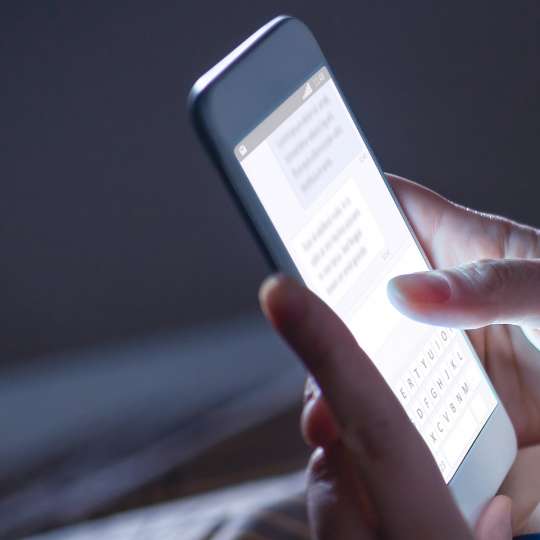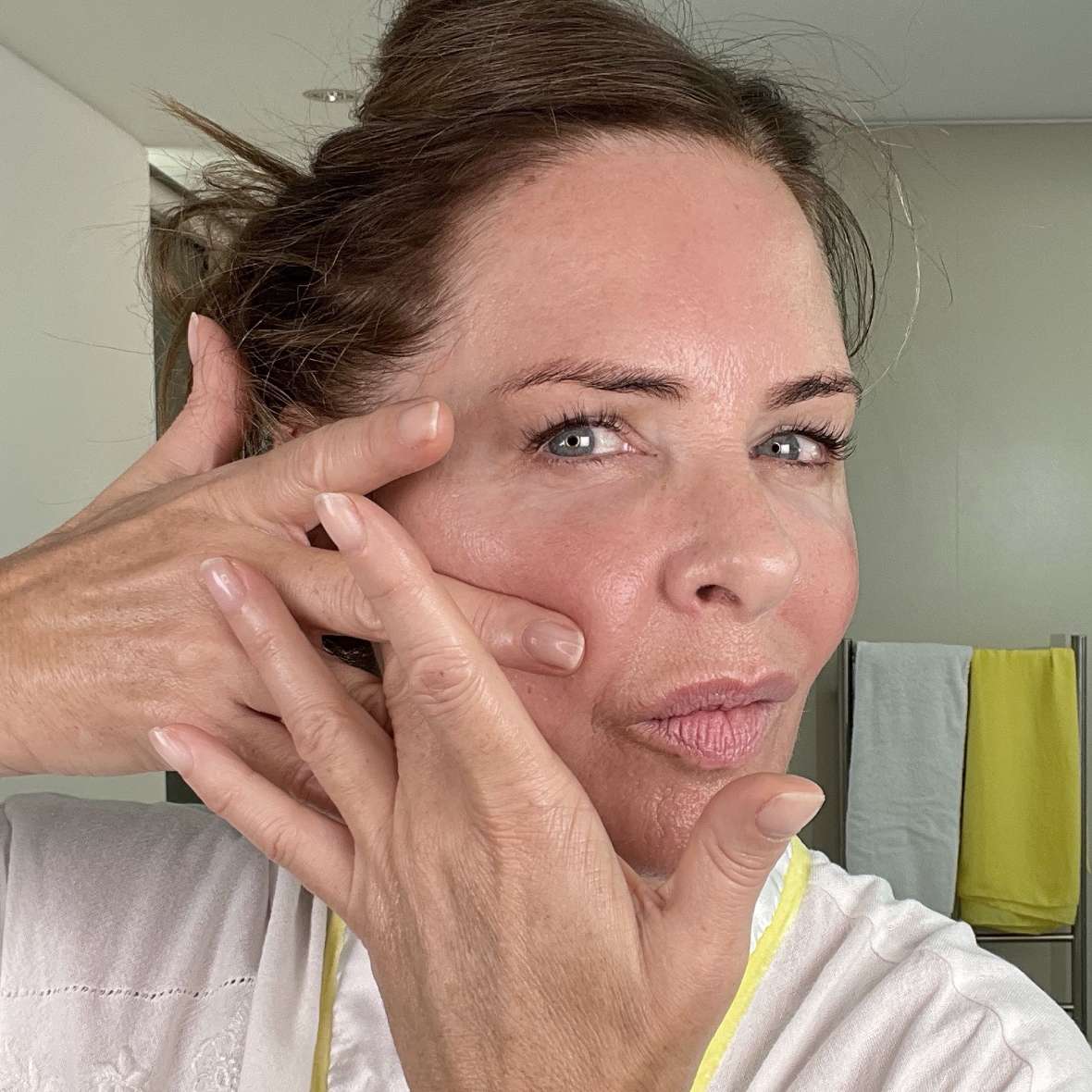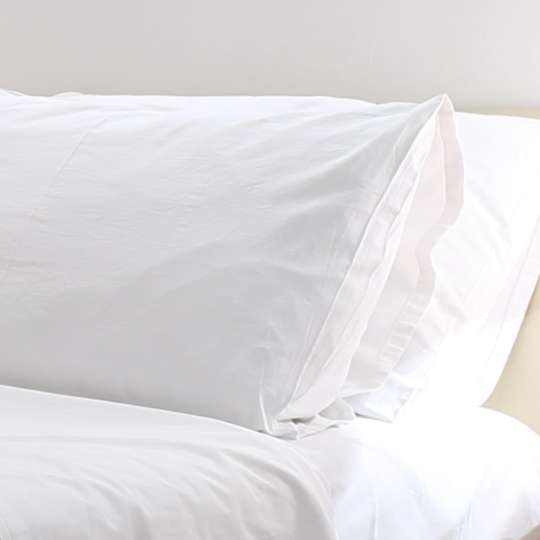

Tips for how to sleep better
We hate to break it to you, but the key to how to sleep better can’t be found in a lavender pillow spray, milky drink or a long bath. Rather there needs to be a focus on the science around sleep.
Whether you’re suffering from insomnia, noticing that sleep isn’t coming quite as easy as it once did or simply looking to improve your sleep, everyone can benefit from these expert-approved tips.
1. Work up an appetite for sleep
It sounds simple, but if you’re not spending your day carrying out activities that will make you feel tired by night time, then you’re not going to be able to sleep. “We need to make sure that during the day we’re getting good exercise and eating well,” advises sleep physiologist Stephanie Romiszewski. “Move, get some light and eat – do this consistently and at regular intervals.”
To put it simply, if you’re spending the day in a dark room, not eating properly and not moving around, then it will be almost impossible for you to nod off come 11pm as you won’t need to sleep. It’s a little bit like eating a 3-course meal and then being offered another one straight after. Chances are you’d decline, as you’d be too full.
2. Wait until you’re tired
We’ve all been there, tossing and turning or staring exasperated at the ceiling, wishing we felt tired enough to go to sleep. It's a frustrating state, which can then feed into our inability to nod off, making the problem worse.
According to Stephanie, the key is not getting into bed until you feel sleepy – even if that means your bedtime is much later than usual. “Everyone thinks you should go to sleep at the same time every night, but what I need you to do is give yourself permission to stay up until you feel sleepy.” It can feel frightening at first, but it will help you to avoid those hours spent counting sheep.
“We have a sleep drive which has been building up all day. It’s a drive state, so the longer you stay awake, the more sleepy you get, and therefore the more you’ve got the drive to sleep. It’s a bit like hunger and thirst.” Sleepiness starts to set in when the level of melatonin in our body’s rises and our temperature begins to drop.
A caveat here is that if you are a good sleeper, or have managed to establish a more balanced cycle, you will likely find you start to naturally stick to one bedtime. “It is true that when you’ve got a nice, good sleep cycle you’ll notice you probably will go to bed around the same time every night,” says Stephanie.
3. Set a strict wakeup time
If you’re serious about sleep, you need to re-think your lie-ins. One of the first things Stephanie advises her patients to do is wake up at the same time every single day. That means setting an alarm – even on the weekends.
“If you feel that you have to use a lie in at the weekend to compensate on a regular basis then you’re mucking up your sleep-wake cycle and circadian rhythm,” explains Stephanie. “You need an alarm and you need to get yourself up at the same time every day.”
“This is my advice for people to help them get back on track. Think to yourself, I’m going to wake myself at the same time every morning and that’s going to be my reset button. No matter what happens to me at night, I have the chance to reset myself.” Even if you haven’t managed to sleep much by the time your alarm sounds, don’t stress, it will only improve night on night.
Prone to pressing snooze? Stephanie suggests you switch the lights on as soon as possible. “Make sure you get bright light exposure in the morning because that’s going to help reduce melatonin (the sleep hormone) and increase serotonin (the happiness hormone.” Natural light is always best, but if opening the curtains isn’t an option, or you’re in the depth of winter, a bedside lamp or overhead light is the next best thing.
4. Don’t try and pay off sleep debt
Had a late night? There’s a common misconception that if you have missed sleep, you need to make up for those lost hours either through napping, or by sleeping more the next night. But, according to Stephanie, that simply isn’t true.
“When it comes to sleep debt, it’s not an eye for an eye. You can’t lose four hours and gain four hours, that’s not how it works. In fact, your brain is so amazingly smart that it can actually take that deprivation and help you have a better night’s sleep. Yes of course, a byproduct is that you’re going to feel a bit sleepy during the day, but sleepiness is exactly what you need in order to get to sleep.”
5. Leave the bedroom if you wake up
There are few things more isolating than the feeling that you’re awake while the rest of the world is asleep. A simple solution? Get out of bed.
“What I would do is leave the bedroom and continue with your evening activities,” Stephanie advises. “I want you to do something that makes you feel happy and content. Enjoy yourself in a way you know is still relaxing, so the kind of things you might do in the hours before you go to bed. You’re out of the bedroom, so you don’t have an association between the bedroom and not sleeping, which is where the stress comes in.”
6. Make your bedroom a sleep-only zone
Our brain’s are very good at making associations between things. Does the sniff of a particular perfume take you straight back to a long-ago holiday? Does a certain colour remind me of your school days? It’s the same with places. If you work in your bedroom then you’re more likely to associate the space with feelings of stress or worry, making it harder to relax and unwind before bed. If you can, keep your bedroom as a sacred space that’s just for sleeping.
7. Leave a gap between eating and sleeping
Eating cheese and chocolate might not necessarily equal bad dreams, but there is truth in the idea that what you eat, and how long you eat before bedtime, can impact your sleep.
Trying to head to sleep straight after dinner is a bad idea, as it’s asking your body to undertake too many processes at once. “You’ve got to understand that you’re asking your body to metabolise and sleep, and you can’t do both at the same time efficiently,” explains Stephanie. “So one or the other will be impaired.” Rich or heavy foods, which take longer to digest, can have an impact too. If you notice a pattern between larger meals and trouble sleeping, try to adjust your dinner time accordingly.
Read, watch and be inspired...



